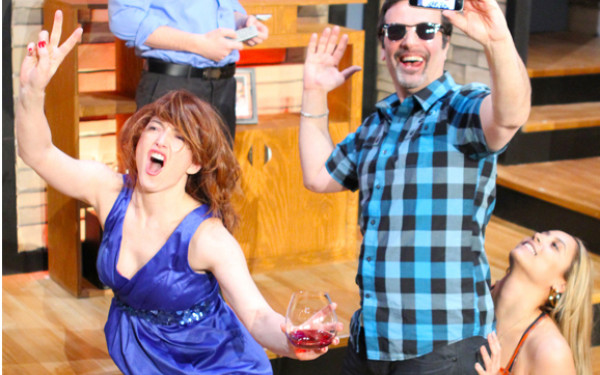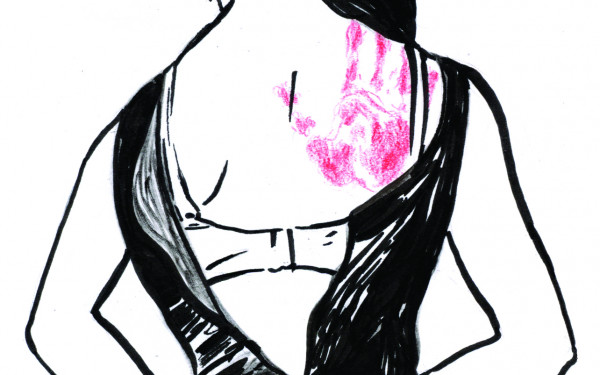Review: Kafka’s Ape
In a world where we’re consumed by pointless reality shows and competitive sports, theatres can slap us in the face with reality and force us to question it.
Guy Sprung’s Kafka’s Ape does just that.
Adapted for the stage, Franz Kafka’s 20th-century short story A Report to an Academy is credited to impeccable direction, riveting performances and an appropriate amount of monkeying around.
There is a timeless and fundamental message to be shared at the Bain Theatre, and it takes an ape for us to get us to hear it.
The plot centres around Red Peter, the protagonist ape-turned-human, addressing a group of shareholders—we, the audience—about his reasoning and process for adopting human characteristics whilst in a cage on a cargo ship.
He had been captured and held captive by the military force “Greywater” and so decided that the only means of survival was to become one of us, or “ooman.”
Time, tribulation, and growing accustomed to the taste of whisky earned him his “E-scape”, a military position within Greywater, yet ironically, zero true freedom.
Howard Rosenstein furnished yet another stunning and captivating portrayal of Red Peter—this is the second time the play has been brought to stage and it is evident in his acting that he has become a master of the role.
Despite the fact that Rosenstein had the exhausting task of delivering a 70-minute monologue dressed as an ape in a suit, the audience hung on his every word, mesmerized by his storytelling.
If the tired resonance of his voice did not establish his talent, his primal gestures and the subtle way in which he got visibly more intoxicated with each glass of wine certainly did.
Alexandra Montagnese supports him as the presence of what he used to be—an animal. Though Mrs. Red Peter is without dialogue, she portrays an ape so naturally that watching her bow at curtain call seemed bizarre.
Endless hours spent YouTubing chimpanzees was definitely worth her while, as her performance had the fiery capability of a true artist.
If the performance alone wasn’t sufficiently captivating, Sprung and his design and technical team established surprising and effective theatrical conventions to embellish Rosenstein’s monologue.
The audience was seated around conference tables ordained with tablecloths and flower vases as if we were the shareholders. This allowed the apes to interact with audience members, evoking intimacy without crossing showgoers’ bounds.
Screens in the foreground displayed information, realistically depicting a conference. The play was clever in its minimalism, and used everything from the ceiling balloons to audience members to wonderful effect.
Kafka’s Ape is an example of what theatre is and has always been—one of the most profound forms of communication.
Not only does the show entertain, it informs, and does so with a team of Montreal’s finest artists.
The show runs until November 24, so it is highly recommended to quit monkeying around and go experience this provocative and stimulating theatrical accomplishment for yourself.

_820_615_90.jpg)


_600_375_90_s_c1.jpg)


__600_375_90_s_c1.jpg)